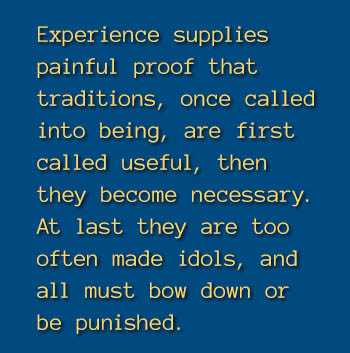
In my previous article in this series, we explored what the Bible is, where it came from, and what it has to say about itself. In this installment, we’ll tackle the question posed in this article’s title. The answers I’m about to provide here are the principles I use whenever I examine the Scriptures and am seeking God on any given matter, especially those I share on this blog.
The topic at hand can be summarized in the $10 theological term hermeneutics. Hermeneutics is the theological discipline devoted to how we interpret the Scriptures. You are about to read the best set of hermeneutical guidelines I’ve ever found, written in plain and non-theological language.
Most of it is common sense.
Unfortunately, common sense is rather scarce when it comes to the Scriptures these days. It is both amazing and appalling to see some of the doctrinal positions held by many so-called Christians. The incredibly ridiculous and/or toxic social media comments they make supporting their bogus religious opinions with misinterpreted Bible passages are legion. But I’m already digressing… Oops! Sorry! 😇
Avoid Eisegesis at All Costs
Eisegesis sounds like some sort of dread disease, doesn’t it? When dealing with Scripture, that is 100% accurate! Tragically, there is a pandemic of it both inside and outside the Church!
Eisegesis is best understood when contrasted with exegesis:
- exegesis
- the process of drawing out a text’s meaning in accordance with the author’s context and discoverable meaning.
- eisegesis
- the process of interpreting text in such a way as to introduce one’s own presuppositions, agendas or biases. It is commonly referred to as “reading into the text” or “front-loading.” It is often done to “prove” a pre-held point of concern, and to provide confirmation bias corresponding with the pre-held interpretation and any agendas supported by it.
- Exegesis tends to be objective
- Eisegesis is by definition highly subjective

Shoshin “Beginner’s Mind”
We should always approach God’s Word with a teachable attitude Buddhist folks call shoshin or “Beginner’s Mind,” a concept I learned during my martial arts studies. Applied here, it means we never consider ourselves to be “experts” — regardless of our level of education, spiritual maturity, public renown, or personal accomplishments — but endeavor to read the Scriptures with fresh eyes every time we open the book.
The practical outworking of this mindset means our allowing the Holy Spirit to teach us as He sees fit, not according to what we already think we know. In other words, we are constantly adjusting our attitudes/viewpoints to His by imitating those Berean folks in Acts, who:
…received the word with all readiness, and searched the Scriptures daily to find out whether these things were so.
Acts 17:10b
What Kind of Doctrine Are You Dealing With?
The number of sincere believers — even ministers — who struggle with this issue are like grains of sand on a beach. Recognizing what kind of doctrine you are dealing with is foundational to hermeneutics.
There are 3 levels of doctrine within Christianity:
- Essential doctrine
- Peripheral doctrine
- Tradition
Let explore each of those in turn.
Essential Doctrine
These are the core beliefs of Christianity. They define the minimal standards of what a person must believe to be accurately labelled a Christian. In other words, if you deny or redefine one or more of Christianity’s essential doctrines, you are not saved, not born-from above, and not going to heaven, period, without exception.
A non-exhaustive list of examples includes:
- One True God
- The Trinity
- The Depravity of Man
- The Virgin Birth
- The simultaneous 100% divinity & 100% humanity of Christ (aka the “hypostatic union”)
- The substitutionary death of Jesus
- The physical resurrection of Christ from the dead
- The efficacy of Jesus’ blood alone to remove all our sins
- The New Birth
- Salvation is only by grace alone through faith alone in Christ alone.
- We are saved to perform good works, not by those works.
- The inerrancy of the Bible (in the original languages)
- Holy Communion
- The Bible as the sole authority over faith & practice for all Christ-followers
- The return of Jesus to the Earth at the end of time
- The Last Judgement
The bottom line concerning essential doctrines is this: if a group of people doesn’t believe one or more essential doctrines, they are not our brothers/sisters in Christ; they are still lost in their sins no matter how pious they may appear or how many good/religious works they may perform.
Heresies & Cults
 Heresies are essential doctrines which have been negated, redefined, or warped into something inconsistent with the rest of God’s Word. Logically, those embracing heresies are called “heretics.” Groups of heretics who adhere to the same set of lies are called “cults.”
Heresies are essential doctrines which have been negated, redefined, or warped into something inconsistent with the rest of God’s Word. Logically, those embracing heresies are called “heretics.” Groups of heretics who adhere to the same set of lies are called “cults.”
The New Testament clearly forbids us as believers from engaging with heretics as if they are our brothers and sisters in Christ. Indeed we are commanded to expel them from our local churches whenever and wherever found. Please note that burning them at the stake or torturing them with soft cushions and comfy chairs are never found in that list. But again, I digress…
Peripheral Doctrine
Peripheral doctrines are those specifically commanded or taught in the Word of God, but they never determine whether you are going to heaven or not.
Here is a non-exhaustive list of peripheral New Testament doctrines:
- Prayer
- Worship
- Water baptism
- The Baptism of the Holy Spirit with the evidence of speaking in tongues
- Evangelism
- Caring for the poor
- Financial giving
We can easily find passages in the Word teaching how Christ-followers are to pray, worship, be water baptized, celebrate Jesus’ death and resurrection through communion, evangelize the lost, and care for the hurting. There are yet other passages detailing how we can and should be baptized with the Holy Spirit and speak in tongues.
Are we going to hell if we don’t do them? Not a chance!
Granted we will not experience the blessings we would otherwise experience from our conformity with these doctrines, but our eternal destiny is absolutely secure.
Why is this?
Because our standing before God is based upon the blood of Jesus and His finished work of the cross and nothing else, period.
The bottom line concerning peripheral doctrines is this: believers of good conscience and strong faith can agree-to-disagree about any of them. They remain our brothers and sisters in Christ. We are not only encouraged, but commanded to maintain Christian fellowship with them.
I do have to say if you have not been baptized in the Holy Spirit (aka the charismatic experience), you’re going to have a difficult time accurately exegeting passages like chapters 12 and 14 of 1 Corinthians.
Traditions
Traditions cover how various Christian groups implement peripheral doctrines as well as how they conduct their worship services. Examples of this are:

- Offerings
- Are receptacles (plates, velvet bags, paper paint buckets, etc.) passed among the seated congregation, or;
- Do members walk to the front of the auditorium/sanctuary and deposit their gifts in containers held by ushers, or;
- Do they drop their offering in a box somewhere in the church building, or;
- Do folks give electronically using a website or smartphone app?
- Singing
- Is there a choir, worship team, and/or song leader?
- Is there instrumental accompaniment or is the singing a cappella?
- Is that accompaniement an organ, piano, or an ensemble/band?
- Are other instruments are there and of what type?
- Are the instruments acoustic or amplified?
- Is the musical style black-gospel, country-gospel, Christian contemporary, or traditional high church?
- Are there hymnals or are the lyrics projected on screens at the front of the auditorium?
- Do the congregants stand, sit, clap their hands, raise their hands, dance in the aisles, roll on the floor, shout, wave flags and/or handkerchiefs, shout “amen!”, “glory!”, “preach it!”, etc. or some combination thereof?
- Communion
- Are the elements served to those who walk to the front? If so, do they kneel at a railing or stand?
- Or are the elements passed among those seated?
- Is the body of Christ represented by specialized wafers, matzo, oyster crackers, or real loaves of bread?
- Is the blood of Christ grape juice or real wine?
- Is the juice or wine drunk from a common chalice or little plastic glasses?
- Are the communion elements distributed separately or in pre-packaged units containing both a wafer and juice?
- Is communion served by pastoral staff, acolytes, deacons, ushers, or random members of the congregation?
- How frequently? Is it taken weekly, monthly, quarterly, or only on special occasions?
- Water Baptism
- Dunking or sprinkling?
- If immersion, is it in a purpose-built baptismal tank in the auditorium, in a swimming pool, in a nearby body lake, river, or ocean, or in a watering tank for livestock?
- Do water baptisms occur every service or at some longer interval?
The reason traditions rank at the bottom of the doctrinal stack is quite simple: nowhere in the Word does it say how these particular tasks are to be accomplished, if it mentions them at all.
 Please note the only folks Jesus condemned during his earthly ministry were those who elevated their traditions to supersede God’s Word. Their traditions had put the masses into spiritual bondage and hindered them from connecting with God. Please further note this selfsame behavior within Roman Catholicism is what ultimately led to the Protestant Reformation.
Please note the only folks Jesus condemned during his earthly ministry were those who elevated their traditions to supersede God’s Word. Their traditions had put the masses into spiritual bondage and hindered them from connecting with God. Please further note this selfsame behavior within Roman Catholicism is what ultimately led to the Protestant Reformation.
The bottom line on traditions is this: Christians of good conscience and strong faith should be able to disagree with one another concerning any of these without rancor, strife, or division.
No tradition contradicting any essential or peripheral doctrines should ever be taught or practiced.
Be Only As Specific As The Bible Is
This can also be a minefield for some Christ-followers. Let’s dig into this and figure out how to navigate it without blowing ourselves up. Again, we have 3 categories:
Specific & Direct
This one is a complete no-brainer: be equally specific and direct!
For example:
- God is quite explicit concerning Jesus being the only Way to the Father (see John 14:6; Acts 4:12)
- He is extremely specific throughout both testaments concerning His hatred of idolatry.
- Neither does He mince words about sexual misconduct, murder, theft, covetousness, falsehood, arrogance, and Christians marrying non-believers.
There is absolutely no combination of circumstances and/or personalities which can ever make disagreement with these acceptable in the eyes of God, period. Wherever God is direct, specific, and uncompromising, God expects us to be equally so.
Whenever we are wishy-washy about such issues, we are compromising God’s Word. Such compromise never safe because the door of satanic deception swings wide open to those involved.
Only verses which are clear and specific qualify as foundations for the establishment of essential and peripheral Christian doctrine.
Vague or Non-Specific
 The Bible doesn’t contain everything there is to know about God. However, it does reveal everything God decided we need to know about Him, ourselves, and the world around us. He did this so we can be successful in our relationships with Him and our fellow man.
The Bible doesn’t contain everything there is to know about God. However, it does reveal everything God decided we need to know about Him, ourselves, and the world around us. He did this so we can be successful in our relationships with Him and our fellow man.
That being said, the Bible sometimes doesn’t state things with the level of directness we crave — we want everything to be stated with a clarity equal to “Thou shalt not steal.”
Why do we humans detest ambiguity or vagueness when dealing with God? I believe there are two reasons:
- Because we flawed humans have an inherent fear of getting on His bad side (there’s our arch-nemesis man’s religion rearing its ugly head again). We want to know precisely where we stand before God on any given issue because our corrupt flesh is spiritually lazy — unambiguous passages require little thought, faith, or effort on our part.
- Because we have this insane sin-nature-based compulsion to “figure God out” so we can be in control (knowledge = power), instead of our simply trusting in His love with child-like simplicity and submitting to Him as our Heavenly Daddy.Why do I say insane? Because we continue to do so despite failing in every attempt we make. As they say in recovery circles, “Insanity is doing the same thing over and over again while expecting different results.”
We simply need to accept by faith God was vague for excellent reasons of His own — whether we can ascertain His eternal purposes for doing so or not — and steadfastly resist the temptation to remove that vagueness using our own intellect, cultural norms, personal prejudices, or denominational traditions. This is our only true “safe place” on such matters.
If the Spirit of God brings greater specificity to our understanding of a vague passage, we should treat it as given to us alone personally. If we do share it, we should qualify it with the opening phrase, “This is what I believe the Lord showed me about this” and end it with the phrase, “But what He showed me was for/about me. How you apply this passage to your own life is between you and God.”
Silent
Here again we have a no brainer: keep your opinions to yourself!
If we absolutely have to express an opinion, at least qualify it as such, “This is my opinion and why I believe it, but you are under no obligation before God to agree with me.”
- Never, ever quote your opinions as doctrine.
- Never, ever judge another believer as “less than” -OR- a minister as unqualified because he or she has the temerity to disagree with your opinion(s).
Your opinions are not the voice of the Holy Spirit!
A clear indication of our violating that principle is whenever we start thinking God hates the same people we do. Selah!
Never Base Doctrine on Parables
 This is another area where many get tripped up.
This is another area where many get tripped up.
Jesus told parables and stories to illustrate certain principles concerning the Kingdom of God and our relationship to the Godhead. That being said, they should never to be used as the basis for Christian doctrine.
Why is this?
First, many of Jesus’ parables were told to confound his listeners, not inform them, so those stories lack the specificity required for us to establish a doctrinal stance on whatever the topic was. Second, Jesus was operating as a prophet under the Law of Moses — the New Covenant in His blood was not established until His death, burial, and resurrection were accomplished.
Positional vs. Practical
Failure to understand the major distinction here leads many into religious bondage.
Positional
When reading the epistles, we often encounter passages describing something God has done:
- To or for us
- By His grace and mercy
- At the moment of salvation.
These are what can also be termed “unconditional promises.” This means they are sovereign, unilateral acts of grace performed by a member of the Godhead personally.
Such verses reveal our forensic (legal) position as Christ-followers. In other words, they describe our standing before God and what He accomplished for/in us when we first submitted to Jesus’ rule over our lives. As such, we cannot add or detract from them by our performance, good or bad.
Examples include 2 Corinthians 5:17,21, Colossians 1:12-13, almost all of the first 2 chapters of Ephesians, etc.
Practical
Practical or conditional promises are where:
- God commands us to do something or act a certain way or have a specific attitude, and then;
- Promises He will reward us with a blessing for our obedience.
I have never personally encountered an exception to the following: such promises concern the practical issues of living the Christian life on this earth. Walking in them is dependent entirely upon: 1) our faith in them, and; 2) our compliance with their conditions. To the extent we trust and obey, we will experience the blessing(s) God has promised.
Why the Distinction Between the 2 is Important
Here’s what’s in play: fulfilling the conditions causes us to emulate one or more character attribute(s) of Jesus. After we have done that for an extended period of time, it eventually becomes a habit, then a character trait. As Emerson once wrote:
Sow a thought, reap a choice.
Sow a choice, reap an action.
Sow an action, reap a habit.
Sow a habit, reap a character.
Sow a character, reap a destiny.
Ralph Waldo Emerson
In this manner, God grows our Christ-likeness in the specific area covered by that promise. (more on this topic here)
Never get these two types of promises confused!
Taking verses containing unconditional promises and treating them as if they were conditional puts us into a performance-based mindset removing grace from the equation of our dealings with God. The end result is we get caught up in performing dead religious works trying to earn His favor, rather than living a blessed life of service founded upon the unconditional love and grace of God.
Who Does What?
One of the temptations many Christ-followers succumb to is trying to reverse roles with the Almighty. No one is immune to this tendency, myself included. It’s deadly trap, so it is crucial we get this division of spiritual labor correctly set in our thinking.
3 Things We are Accountable for as Believers
If God commands us to do something, it is our responsibility to obey Him, period!
For example, when He tells us to:
- Humble ourselves — our job is to humble ourselves, not pray for Him to make us humble. Heed the voice of personal experience here: if you refuse to humble yourself and ask Him to do it for you, you won’t like what follows one teensy bit! He will answer those kinds of prayers by putting you through a grueling process which is extremely unpleasant and utterly humiliating! (see 1 Peter 5:6)
- Resist the devil — our mandate is to resist Satan (see James 4:7), not pray for God to get the devil off our case.
- Trust Him — we are to deliberately choose to place our full faith and reliance on God (see Proverbs 3:5-6), not ask Him for the gift of faith. We received that gift back when we were born from above, so the issue at hand is whether or not we are going to obey God and use it. If God tells us certain conditions exist for us to receive one of His promises, it’s our responsibility to:
- Stand on that promise in faith and;
- Fulfill His condition(s) — by His grace, rather than in our own strength.
We are responsible for deliberately choosing to believe God’s Word as the Truth, whole Truth, and nothing but the Truth, despite:
- The circumstances we see in our lives or bodies
- What others have said or may say, including doctors. lawyers, and other professionals
- What we think, perceive, or feel emotionally
- What our family members and associates think or believe
- What the common wisdom or public opinion indicates
- What your religious traditions or societal/cultural norms may dictate
- What extra-biblical writers, theologians, reformers, or Bible commentators have said or written about the matter in times past
- What perceptual filters we may have caused by emotional/mental/physical/sexual trauma/abuse we have suffered at the hands of others
- Any other factor or influence contradicting God’s Word, period, end of story!
Things God Is In Charge Of
God reserved to Himself several matters over which He exercises sole authority. Accordingly, He steadfastly resists all efforts on our part to interfere with them. They include:
- Methods — How God answers our prayer is His business, not ours. We are to obey His commands, both from His Word and from the leading of the Holy Spirit, and resist all temptations to “help God out” with our own schemes, methods, and influences.
- Timing — When God answers our prayers is also his bailiwick. We wait upon Him as He develops our faith/patience and brings His influence to bear on our behalf. That influence is primarily aimed at the hearts and minds of those He chooses to use to bless us. As with methods, we must resist all temptation to try to make it happen faster through our works of the flesh.
- Honoring His Word — We can count on His Word to be true in all details, in all times, in all places, under all circumstances, regardless of whoever/whatever else is involved.Why?
Because God never changes (see Malachi 3:6a). We can always count on God honoring His Word above His own name (see Psalm 138:2). We can always trust that God watches over His Word to perform it (see Jeremiah 1:12). We can rest assured “all the promises of God are yes and amen in Christ” (see 2 Corinthians 1:20)
Let the Bible Interpret Itself
 There’s a theological term for this: analogia fides. It means that we assume the Bible speaks with integrity and is therefore its own best interpreter.
There’s a theological term for this: analogia fides. It means that we assume the Bible speaks with integrity and is therefore its own best interpreter.One of the hermeneutical mistakes many believers — even theologians — commit is looking to the past. They allow the teachings and opinions of long-dead theologians, reformers, and commentators to determine what a Bible passage means. While such writings are valuable as well as historically informative, I must emphasize here:
- Such men were fallible and opinionated, just as we all are.
- Their worldviews were influenced by their doctrinal and personal histories, emotional baggage, education, personal testimonies, and the cultures/times in which they lived, just as we all are.
Therefore, their opinions and interpretations of Scripture cannot help but be influenced by those factors.
Two logical fallacies arise from such a dependency upon theologians of the past: ad verecundiam (appeal to authority) coupled with ad antiquitatem (appeal to tradition).
Neither is useful in hermeneutics.
In other words, “old” does not automatically equate to “correct.” Classic examples of this are Augustine and other early church fathers or Thomas Aquinas, all of whom attempted to syncretize Greek secular humanist philosophy with Christianity. Their writings have become the basis for several of the doctrinal errors present in both Calvinism and Roman Catholicism.
Dependency upon extra-biblical writings and commentaries also plays into our inherent fleshly hunger to seek human validation for our beliefs, rather than depending upon the Holy Spirit to lead us into all Truth, then resting upon our own convictions He produces in us. Because of this, we have a natural tendency to read a commentary and say, “Well, that settles that!” rather than looking past it, inquiring further, and prayerfully seeking God for whatever it is He may be wanting to impart to us.
The bottom line is we should allow the Bible to speak for itself — wherever that may lead us — rather than depending upon commentators to tell us what we should believe.
Guidelines for Interpretation
While the words of Scripture have one meaning, there can be many applications. Here are some questions we should be asking when approaching God’s Word listed in the order in which they should be answered:
- The Principle of Original Intent
- What was the meaning intended by the original author?
- What was the meaning taken by the original audience?
- The Principle of Context
- What is the historical context of the writing?
- What is the biblical context of the writing?
- What is the documentary context of the text in question?
AUTHOR’S NOTE: More on this in the following section.
- The Principle of Rational Priority
- What texts are the most clear, explicit, and unambiguous?
- How do the clear texts shed light on the obscure texts and their implication?
- The Principle of Literary Genre
- Is it poetry?
- Is it historical narrative?
- Is it prophetic language?
Where are there other examples of similar wording in the Bible and how are they understood?
Interpretation Precedes Application
Every text has one basic meaning which must be first determined. Each may have countless applications which may then be identified.
Always Consider The Context
Never, never, EVER interpret a Bible verse or passage outside of its context!
“You can use the Bible to prove anything” is an article of faith in pop culture. When taking context into account, they are dead wrong! However, once you start taking verses out of their proper context, that statement becomes an irrefutable universal truism.
A classic example is the following 3 verses strung together with a complete disregard for their context:
Judas went out and hanged himself.
Go thou and do likewise.
What thou doest, do quickly! We may find the total ridiculousness of this humorous — I know I do! But tragically, history is rife with examples of the misguided and nefarious committing eisegetical violence on the Scriptures in a similar manner. Indeed, such hermeneutical butchery undergirds their justification for all of the evils I raised in the introduction to this article as well as a host of others.
We may find the total ridiculousness of this humorous — I know I do! But tragically, history is rife with examples of the misguided and nefarious committing eisegetical violence on the Scriptures in a similar manner. Indeed, such hermeneutical butchery undergirds their justification for all of the evils I raised in the introduction to this article as well as a host of others.One pet peeve of mine is the treatment many ministers and Christians give to the Book of Job. This single book stands head-and-shoulders above all the others in the Bible as being the biggest goldmine of bogus sermons, books, songs, and theological horse-hockey ever foisted on the Body of Christ. I’ve already dealt with Job in greater depth elsewhere here, so I’ll leave it at that.
Guidelines for Establishing Correct Scriptural Context
- Who is talking:
- God?
- Jesus?
- Satan?
- A godly man or woman?
- A rebellious sinner?
- Who is being addressed:
- God?
- Jesus?
- Satan?
- A godly man or woman?
- A rebellious sinner?
- The Body of Christ?
- Who was the author:
- A prophet?
- A historian?
- An apostle?
- A king?
- What was the author’s role in what:
- Took place?
- Is being discussed?
- What were stated goals of the author, if any?
- What is the topical content of:
- The verses immediately surrounding the verse in question?
- The chapter where the verse/passage is found?
- The book containing that chapter?
- What testament is the book found in?
- If it’s in the Old Testament or Gospels, what may have changed after the death, burial, and resurrection of Jesus and the birth of His Church?
- What was the era in which the book was written?
- How was God relating to His people during that time
- How was God relating the sinners of that era?
- Was it during:

- The Age of Innocence in Eden before Adam and Eve rebelled?
- The patriarchal age between The Rebellion and the appearance of Abraham?
- The period of the Abrahamic covenant prior to and including the Jews’ enslavement in Egypt?
- The era beginning with their exodus from Egypt and ending with the resurrection of Jesus, during which the Law of Moses was in force?
- Jesus’s earthly life and ministry?
- The Church Age beginning with the resurrection of Jesus and the birth of the church?
- Last, but not least, is your interpretation consistent with the spirit and letter of the Bible as a whole?
The Word Is Alive
In closing, I would like to share a song by the band Casting Crowns from their 2007 album “The Altar and the Door.” As most of you know, I’m a big-time fan of Christian rock music and these folks are one of my all-time favorites.This piece is the closest thing to being a “perfect” Christian song I can recall in that not a word can be added or changed to make it better or deleted without gutting it — much like God’s Word itself! The song and its lyrics are below:
The Word Is Alive
VERSE 1
Looking out from His throne,
The Father of light and of men
Chose to make Himself known
And show us the way back to Him
Speaking wisdom and truth
Into the hearts of peasants and kings
He began to unveil
The Word that would change the course of all thingsWith eyes wide open, all would see:
CHORUS
The Word is alive!
And it cuts like a sword through the darkness
With a message of life to the hopeless and afraid
Breathing life into all who believe!The Word is alive!
And the world and its glories will fade,
But His truth, it will not pass away!
It remains yesterday and forever the same.
The Word is alive!VERSE 2
Simple strokes on a page
Eternity’s secrets revealed.
Carried on from age to age,
It speaks Truth to us even still
And as the rain falls from Heaven,
Feeds the earth before it returns
Lord, let Your Word fall on us
And bring forth the fruit You deserve!With eyes wide open, let us see:
CHORUS
SPOKEN
The Bible was inscribed over a period of 2000 years, in times of war and in days of peace by kings, physicians, tax collectors, farmers, fishermen, singers, and shepherds. The marvel is that a library so perfectly cohesive could have been produced by such a diverse crowd over a period of time which staggers the imagination!CHORUS
OUTRO
The Word is alive! (the world and its glories will fade!)
His Word is alive! (His truth, it will not pass away!)
The Word is alive! (His Word is alive, His Word is alive!)SPOKEN FADE-OUT
Jesus is it’s great Subject, our good its design, and the glory of God is its end!Conclusion
Well, that about sums up this topic. I pray this will help you exegete wisely and well.
Thanks for reading!
Go to Part 1: What Exactly Is The Bible?


